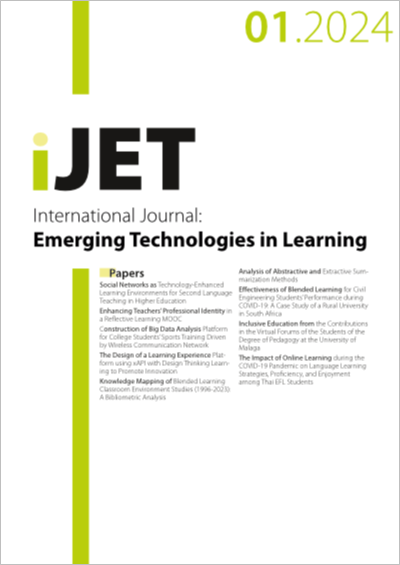Enhancing Teachers’ Professional Identity in a Reflective Learning MOOC
DOI:
https://doi.org/10.3991/ijet.v19i01.38897Keywords:
reflective learning, professional identity, vicarious learning, negative role model, massive open online course, teacher educationAbstract
Social interaction in online teacher training can be challenging. Accordingly, we aim to explore how a massive open online course (MOOC) for teacher training affects the professional identity (PI) and development of teachers. This course was developed based on the reflective learning framework (RLF) and utilises modelling as a teaching method. For that, we enrolled in a mixed-method research study. Data were collected from 54 teachers and three discussion boards. Next, it was analysed through content analysis using grounded theory, the application of the narrative reflection assessment rubric (NARRA), and statistical tests. As a result, we observed a significant increase in teachers’ evaluations regarding reflective thinking (from 24% to 67%) and sociocultural learning (from 13% to 39%) after completing the course. Pearson’s r coefficient showed a positive relationship between the fourth NARRA element, transformation, and its predecessors. This indicates that each element plays a role in a continuous development process. The evidence was sufficient to conclude that the training promoted teachers’ PI development, except in the domain of job satisfaction.
Downloads
Published
How to Cite
Issue
Section
License
Copyright (c) 2023 Jefferson Rodrigues-Silva, Ángel Alsina

This work is licensed under a Creative Commons Attribution 4.0 International License.



